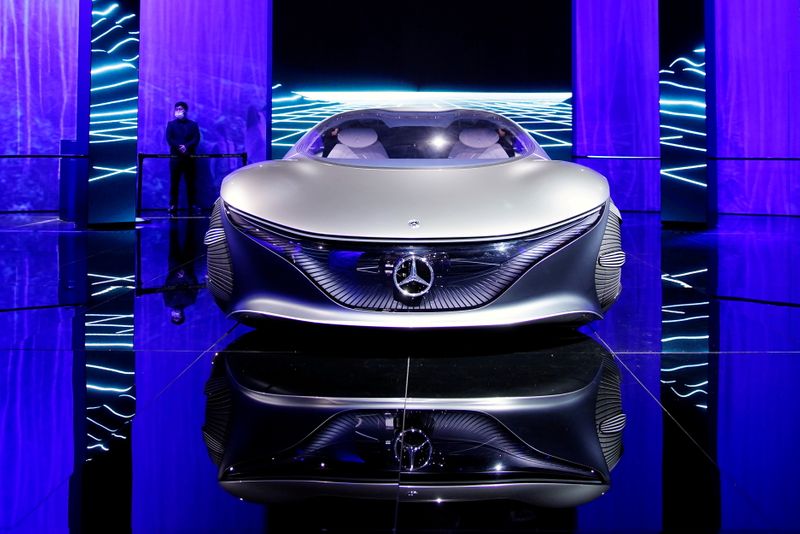By Nick Carey
LONDON (Reuters) -A global shortage of semiconductor chips will dent car sales in the second half of 2021 and will extend into 2022, Daimler AG (DE:DAIGn) said on Wednesday, but the maker of Mercedes-Benz vehicles left unchanged its profit margin outlook for this year.
Along with other carmakers, Daimler (OTC:DDAIF) cut back production this year because of a chip shortage during the coronavirus pandemic, prompting the German company to focus on higher-margin models.
Chief Financial Officer Harald Wilhelm told investors that although the chip shortage would last into 2022, it would be less severe than this year.
The premium carmaker, which also faces the challenge of high prices for steel, copper and aluminium in the second half of 2021, said its visibility into how chip supply would develop was currently low.
"Improving supply visibility is a top priority for us," Chief Executive Ola Källenius told a conference call with analysts and investors, although he said the chip shortage "is a fixable problem."
The shortage comes as demand for cars has spiked during the global economy's recovery from the coronavirus crisis, driving up prices of new and used vehicles as inventories shrink.
Some carmakers have adapted to the chip shortage by dropping some features from their models. General Motors Co (NYSE:GM) said in March some pickup trucks would not have a fuel management module, hurting their fuel economy performance.
Other, including Daimler, have produced vehicles that are still waiting for chips so they can be completed.
"We have some unfinished cars, but we have not let this balloon out of proportion," Källenius said.
Mercedes-Benz car sales in the second quarter jumped 27%, with a 54% jump in Europe, Daimler's second market after China.
After soaring in late 2020 and the first quarter, Mercedes-Benz sales in China gained just 5.8% in the second quarter.
Källenius said order books for the flagship S-class sedans were "very healthy". But he said the supply chain issues "are holding us back."
The company said it expected full-year car sales to be in line with 2020 levels, after previously forecasting car unit sales this year would be significantly above last year's.
Daimler said 2021 adjusted profit margins at its truck and bus division would be between 6% and 7%, which is below its previous forecast for a range of 6% to 8%.
The company confirmed second-quarter adjusted group earnings before interest and tax (EBIT) at 5.42 billion euros ($6.38 billion), with car and truck divisions beating analyst targets.

Daimler reported preliminary results last week.
($1=0.8495 euros)